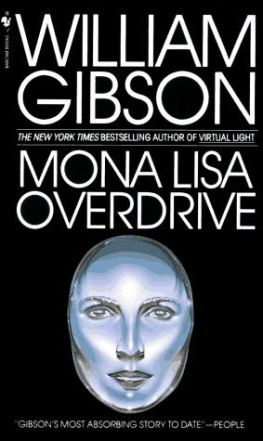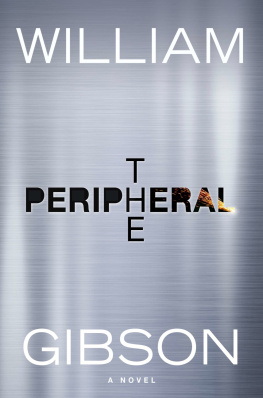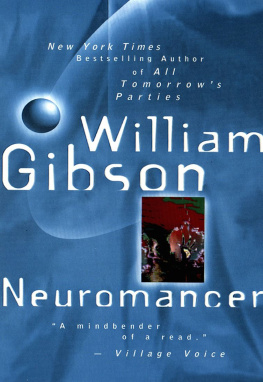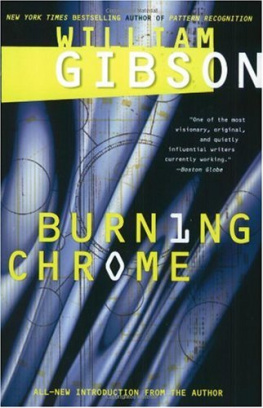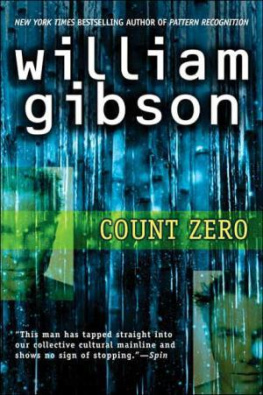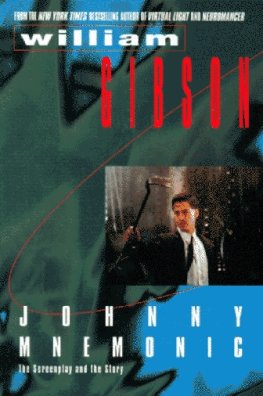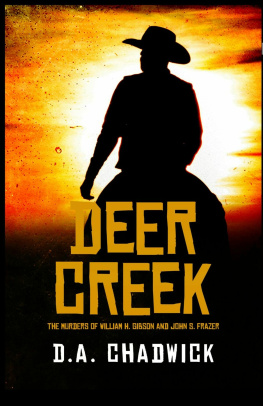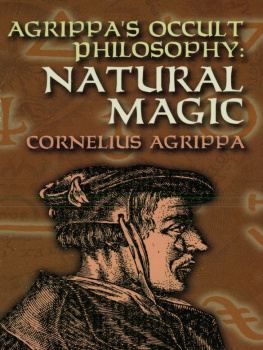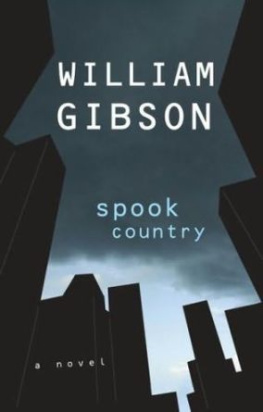William Gibson - Agrippa (A Book Of The Dead)
Here you can read online William Gibson - Agrippa (A Book Of The Dead) full text of the book (entire story) in english for free. Download pdf and epub, get meaning, cover and reviews about this ebook. genre: Science fiction. Description of the work, (preface) as well as reviews are available. Best literature library LitArk.com created for fans of good reading and offers a wide selection of genres:
Romance novel
Science fiction
Adventure
Detective
Science
History
Home and family
Prose
Art
Politics
Computer
Non-fiction
Religion
Business
Children
Humor
Choose a favorite category and find really read worthwhile books. Enjoy immersion in the world of imagination, feel the emotions of the characters or learn something new for yourself, make an fascinating discovery.

- Book:Agrippa (A Book Of The Dead)
- Author:
- Genre:
- Rating:5 / 5
- Favourites:Add to favourites
- Your mark:
- 100
- 1
- 2
- 3
- 4
- 5
Agrippa (A Book Of The Dead): summary, description and annotation
We offer to read an annotation, description, summary or preface (depends on what the author of the book "Agrippa (A Book Of The Dead)" wrote himself). If you haven't found the necessary information about the book — write in the comments, we will try to find it.
Agrippa (A Book Of The Dead) — read online for free the complete book (whole text) full work
Below is the text of the book, divided by pages. System saving the place of the last page read, allows you to conveniently read the book "Agrippa (A Book Of The Dead)" online for free, without having to search again every time where you left off. Put a bookmark, and you can go to the page where you finished reading at any time.
Font size:
Interval:
Bookmark:
William Gibson
Agrippa (A Book Of The Dead)
I hesitated
before untying the bow
that bound this book together.
A black book:
ALBUMS
CA. AGRIPPA
Order Extra Leaves
By Letter and Name
A Kodak album of time-burned
black construction paper
The string he tied
Has been unravelled by years
and the dry weather of trunks
Like a lady's shoestring from the First World War
Its metal ferrules eaten by oxygen
Until they resemble cigarette-ash
Inside the cover he inscribed something in soft graphite
Now lost
Then his name
W.F. Gibson Jr.
and something, comma,
1924
Then he glued his Kodak prints down
And wrote under them
In chalk-like white pencil:
"Papa's saw mill, Aug. 1919."
A flat-roofed shack
Against a mountain ridge
In the foreground are tumbled boards and offcuts
He must have smelled the pitch, In August
The sweet hot reek
Of the electric saw
Biting into decades
Next the spaniel Moko
"Moko 1919"
Poses on small bench or table
Before a backyard tree
His coat is lustrous
The grass needs cutting
Beyond the tree,
In eerie Kodak clarity,
Are the summer backstairs of Wheeling,
West Virginia
Someone's left a wooden stepladder out
"Aunt Fran and [obscured]"
Although he isn't, this gent
He has a "G" belt-buckle
A lapel-device of Masonic origin
A patent propelling-pencil
A fountain-pen
And the flowers they pose behind so solidly
Are rooted in an upright length of whitewashed
concrete sewer-pipe.
Daddy had a horse named Dixie
"Ford on Dixie 1917"
A saddle-blanket marked with a single star
Corduroy jodpurs
A western saddle
And a cloth cap
Proud and happy
As any boy could be
"Arthur and Ford fishing 1919"
Shot by an adult
(Witness the steady hand
that captures the wildflowers
the shadows on their broad straw hats
reflections of a split-rail fence)
standing opposite them,
on the far side of the pond,
amid the snake-doctors and the mud,
Kodak in hand,
Ford Sr.?
And "Moma July, 1919"
strolls beside the pond,
in white big city shoes,
Purse tucked behind her,
While either Ford or Arthur, still straw-hatted,
approaches a canvas-topped touring car.
"Moma and Mrs. Graham at fish hatchery 1919"
Moma and Mrs. G. sit atop a graceful concrete
arch.
"Arthur on Dixie", likewise 1919,
rather ill at ease.
On the roof behind the barn, behind him,
can be made out this cryptic mark:
H.V.J.M.[?]
"Papa's Mill 1919", my grandfather most regal amid a wrack of
cut lumber,
might as easily be the record
of some later demolition, and
His cotton sleeves are rolled
to but not past the elbow,
striped, with a white neckband
for the attachment of a collar.
Behind him stands a cone of sawdust some thirty feet in height.
(How that feels to tumble down,
or smells when it is wet)
II.
The mechanism: stamped black tin,
Leatherette over cardboard, bits of boxwood,
A lens
The shutter falls
Forever
Dividing that from this.
Now in high-ceiling bedrooms,
unoccupied, unvisited,
in the bottom drawers of veneered bureaus
in cool chemical darkness curl commemorative
montages of the country's World War dead,
just as I myself discovered
one other summer in an attic trunk,
and beneath that every boy's best treasure
of tarnished actual ammunition
real little bits of war
but also
the mechanism
itself.
The blued finish of firearms
is a process, controlled, derived from common
rust, but there
under so rare and uncommon a patina
that many years untouched
until I took it up
and turning, entranced, down the unpainted
stair,
to the hallway where I swear
I never heard the first shot.
The copper-jacketed slug recovered
from the bathroom's cardboard cylinder of
Morton's Salt
was undeformed
save for the faint bright marks of lands
and grooves
so hot, stilled energy,
it blistered my hand.
The gun lay on the dusty carpet.
Returning in utter awe I took it so carefully up
That the second shot, equally unintended,
notched the hardwood bannister and brought
a strange bright smell of ancient sap to life
in a beam of dusty sunlight.
Absolutely alone
in awareness of the mechanism.
Like the first time you put your mouth
on a woman.
III.
"Ice Gorge at Wheeling
1917"
Iron bridge in the distance,
Beyond it a city.
Hotels where pimps went about their business
on the sidewalks of a lost world.
But the foreground is in focus,
this corner of carpenter's Gothic,
these backyards running down to the freeze.
"Steamboat on Ohio River",
its smoke foul and dark,
its year unknown,
beyond it the far bank
overgrown with factories.
"Our Wytheville
House Sept. 1921"
They have moved down from Wheeling and my father wears his
city clothes. Main Street is unpaved and an electric streetlamp is
slung high in the frame, centered above the tracked dust on a
slack wire, suggesting the way it might pitch in a strong wind,
the shadows that might throw.
The house is heavy, unattractive, sheathed in stucco, not native
to the region. My grandfather, who sold supplies to contractors,
was prone to modern materials, which he used with
wholesaler's enthusiasm. In 1921 he replaced the section of brick
sidewalk in front of his house with the broad smooth slab of poured
concrete, signing this improvement with a flourish, "W.F.
Gibson 1921". He believed in concrete and plywood
particularly. Seventy years later his signature remains, the slab
floating perfectly level and charmless between mossy stretches of
sweet uneven brick that knew the iron shoes of Yankee horses.
"Mama Jan. 1922" has come out to sweep the concrete with a
broom. Her boots are fastened with buttons requiring a special instrument.
Ice gorge again, the Ohio, 1917. The mechanism closes. A
torn clipping offers a 1957 DeSOTO FIREDOME, 4-door Sedan,
torqueflite radio, heater and power steering and brakes, new
w.s.w. premium tires. One owner. $1,595.
IV
He made it to the age of torqueflite radio
but not much past that, and never in that town.
That was mine to know, Main Street lined with
Rocket Eighty-eights,
the dimestore floored with wooden planks
pies under plastic in the Soda Shop,
and the mystery untold, the other thing,
sensed in the creaking of a sign after midnight
when nobody else was there.
In the talc-fine dust beneath the platform of the
Norfolk & Western
lay indian-head pennies undisturbed since
the dawn of man.
In the banks and courthouse, a fossil time
prevailed, limestone centuries.
When I went up to Toronto
in the draft,
my Local Board was there on Main Street,
above a store that bought and sold pistols.
I'd once traded that man a derringer for a
Walther P-38.
The pistols were in the window
behind an amber roller-blind
like sunglasses.
I was seventeen or so but basically I guess
you just had to be a white boy.
I'd hike out to a shale pit and run
ten dollars worth of 9mm
through it, so worn you hardly
had to pull the trigger.
Font size:
Interval:
Bookmark:
Similar books «Agrippa (A Book Of The Dead)»
Look at similar books to Agrippa (A Book Of The Dead). We have selected literature similar in name and meaning in the hope of providing readers with more options to find new, interesting, not yet read works.
Discussion, reviews of the book Agrippa (A Book Of The Dead) and just readers' own opinions. Leave your comments, write what you think about the work, its meaning or the main characters. Specify what exactly you liked and what you didn't like, and why you think so.

